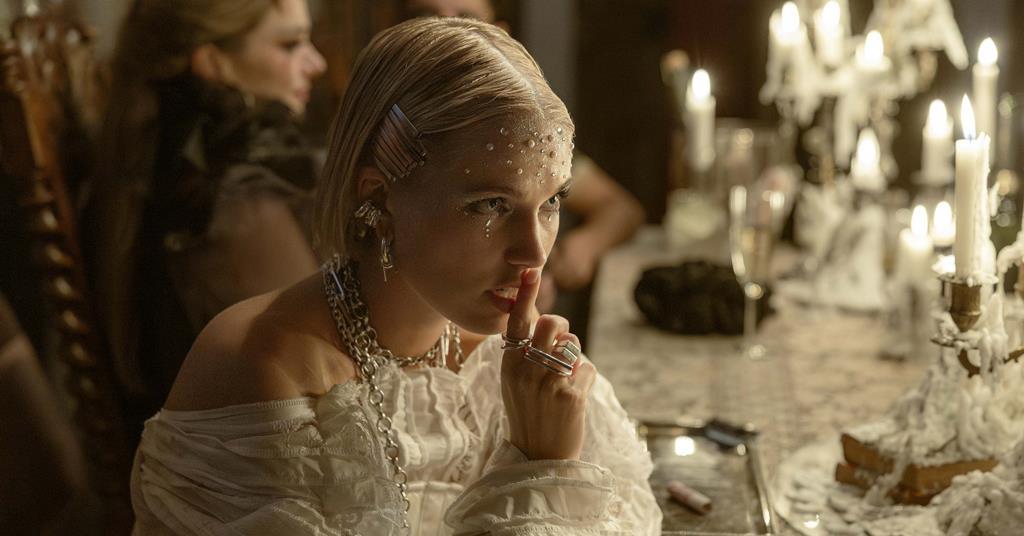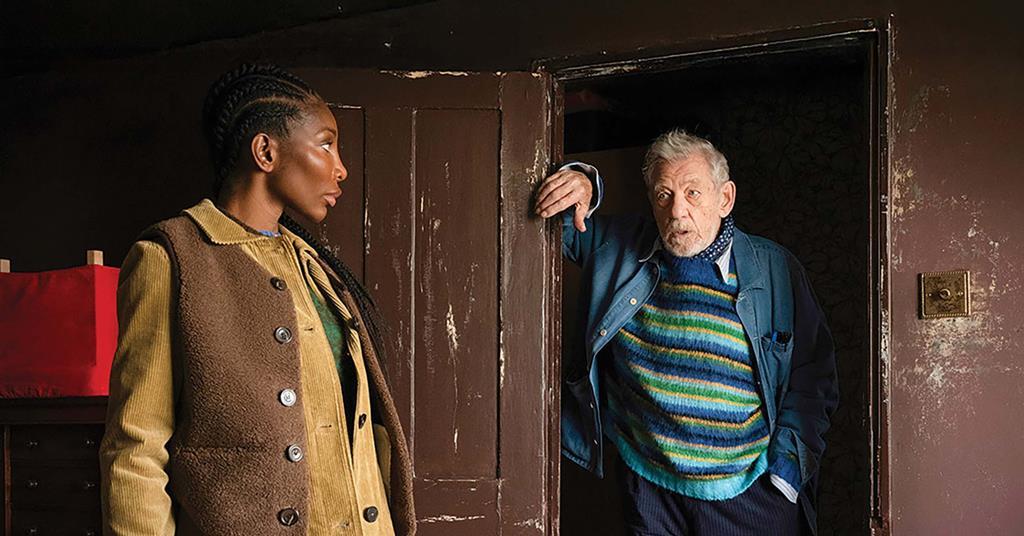After a turbulent period defined by industry shifts and cautious capital, the American Film Market (AFM) has returned to Los Angeles with a slate that proves independent cinema is anything but risk-averse. This year’s gathering of international buyers and sellers is characterized by a high-octane mix of star-studded action thrillers, audacious genre concepts, and prestigious, auteur-driven dramas. The buzz titles circulating the Fairmont Century Plaza hotel reflect a clear strategy among sales agents: give buyers either bankable stars in commercial concepts or critically acclaimed directors with high-quality artistic ambition. As territories shrink and budgets face scrutiny, the films generating the fiercest bidding wars are those offering clear, compelling narratives, demonstrating that in the new era of distribution, a project must shout to be heard above the market noise.
Star Power and High-Concept Thrills: The Commercial Frontline
The most immediate indicators of a healthy market are the packages that leverage recognizable star names and high-concept premises that translate effortlessly across international borders. This year, the action-thriller genre is particularly buoyant, anchored by projects featuring Hollywood heavyweights. Leading the charge is The Beast, an adrenaline-fueled thriller from veteran director Renny Harlin, known for blockbusters like Cliffhanger. The film pitches Samuel L. Jackson and Joel Kinnaman into a nightmare scenario where the U.S. President finds himself trapped inside his heavily armored, titular limousine during an attempted coup. The confined-space, high-stakes premise is catnip for buyers, promising relentless action and a cinematic spectacle tailored for theatrical performance.

Also generating significant heat is All Day & All Night, a new action-thriller starring Josh Hartnett. The film, directed by Tommy Wirkola (of Violent Night fame), plays on the current trend of mixing high-stakes action with dark comedic elements. Hartnett plays a reformed bank robber who returns to crime to pay for his daughter’s Harvard tuition, only to have his carefully planned heist spectacularly derail when he crashes onto the set of a failing reality TV show. This blend of genre pedigree and black comedy offers a refreshing twist on the classic “one last job” trope, appealing to platforms and distributors looking for films that can serve both action audiences and those seeking a dose of absurdity. These titles represent the market’s calculated risk: pairing a proven formula with a fresh visual twist and established talent.
Adding to the star-led commercial roster is a major franchise play: the prequel John Rambo, which is setting up a new origin story for the iconic character. While the original films focused on the weary Vietnam veteran, this new package promises a deep dive into young John Rambo’s formative experiences, offering a fresh entry point for a new generation of fans. The involvement of major production entities and a high-profile director indicates a strong push for a new, action-driven franchise designed for global theatricality and subsequent streaming value. These projects, with their clear commercial appeal, act as the stabilizing anchors for the entire market, providing the necessary blockbusters that fuel the engine of independent sales.
The Auteur’s Return: Prestige Packages and Critical Edge
While commercial spectacles drive volume, it is the prestigious, auteur-driven projects that often command the highest per-territory prices and generate crucial critical buzz. This AFM boasts a selection of titles from revered filmmakers, proving that sophisticated storytelling remains a major asset for buyers seeking awards visibility and high-end platform content. Leading the pack is Steven Soderbergh’s The Christophers, a film that reunites a celebrated ensemble cast, including Michaela Coel and Ian McKellen, in a tale about the estranged adult children of a famous artist who hire a forger to complete his unfinished work. The intricate plot, dealing with issues of legacy, authenticity, and inheritance, is classic Soderbergh—smart, stylish, and casting-heavy—making it an irresistible proposition for distributors aiming for end-of-year awards contention.

Similarly, the Gothic horror King Snake, directed by the critically acclaimed Jeff Nichols, is a major draw. Nichols, known for his masterful command of tone in Southern-set dramas, enters the elevated genre space with a haunted tale set on an Arkansas farm. Starring Margaret Qualley and Michael Shannon, the project signifies the ongoing prestige-ification of horror, attracting buyers who see the financial success of elevated genre films like Get Out and Hereditary. Another major package is Phantom Son, a psychological thriller starring Oscar-winner Renée Zellweger and directed by Harry Potter helmer David Yates. The film, about a lonely woman who takes in a runaway she believes is her long-lost, kidnapped son, offers a compelling mix of star power, psychological depth, and strong emotional hook—elements that guarantee high-value acquisition interest from streamers and international theatrical distributors alike.
These prestige packages highlight a bifurcated market strategy: sales agents prioritize either massive commerciality or undeniable quality. The films from Soderbergh, Nichols, and Yates fall squarely into the latter category, selling on the strength of their artistic pedigree and the promise of a sophisticated viewing experience. In a marketplace saturated with content, the clear vision of a singular director, especially one capable of attracting top-tier acting talent, provides a strong financial reassurance for cautious buyers betting on critical acclaim to drive audience interest.
Boundary-Pushing Genre: The Midnight Market Edge
Beyond the mainstream action and prestige dramas, a powerful sub-section of the market is dedicated to highly conceptual, genre-bending films designed to capture the youth audience and dominate midnight screening slots. These titles often rely on unique, audacious premises rather than massive star salaries, allowing them to thrive in the mid-budget sector. Buzzkill is a prime example: a horror-comedy about a Texas town terrorized by a monster that can only be seen when the beholder is drunk. This high-concept, instantly marketable hook, directed by the experienced genre filmmaker Joe Lynch, ensures viral potential and strong appeal to genre specialists globally.

The international genre slate is equally aggressive. From Germany, Bloody Tennis promises a different kind of body horror, set within an elite tennis academy where a young hopeful uncovers sinister, ritualistic secrets. This blends the high-pressure environment of competitive sports with visceral horror, a mix that has proven successful in recent years. Meanwhile, the Australian market brings Croak, a creature feature centered on teens fighting a giant mutant cane toad terrorizing the outback. While perhaps more comedic in tone, these films collectively signal a robust appetite for inventive, location-specific genre fare that pushes boundaries.
These genre breakouts are essential for the independent ecosystem. They offer fresh voices and original IP without the financial burden of large studio packages, providing smaller distributors and specialized platforms with the unique content they need to differentiate their offerings. For buyers, the key is the premise: if the synopsis is strange and intriguing enough to sell itself in a single sentence, the film is often deemed a sound investment, regardless of the cast’s celebrity status. The “Midnight Market” remains a vibrant proving ground for new talent and unconventional ideas.
Echoes of History: True Stories and Period Dramas
Another strong trend in the AFM slate is the pull of historical and period narratives, particularly those focused on untold stories of resilience and conflict. These films offer grounding, character-driven material that can resonate deeply with older, awards-seeking audiences. The breakout title in this category is Bad Bridgets, a revenge thriller and period drama set against the backdrop of the 19th-century Irish famine. Starring Daisy Edgar-Jones and Emilia Jones, the film follows two sisters who flee the grinding poverty of Ireland only to face new dangers and incarceration after emigrating to the U.S. and Canada.
This package has particularly strong commercial potential, combining a contemporary political resonance with the prestige of a sweeping historical epic, and benefits from the involvement of acclaimed production houses. Similarly, the geopolitical thriller Frequency of Fear is drawing heavy interest. Based on the secret 2024 Israeli operation to detonate thousands of pagers and walkie-talkies in the hands of Hezbollah members, the film offers a ripped-from-the-headlines immediacy, leveraging real-world events for high-tension cinematic drama. Already in post-production, this project appeals to buyers seeking timely, adult-oriented thrillers that feel grounded in recent history.
The demand for these types of narratives underscores a fundamental market need: films that provide context and emotional depth. While spectacle and horror offer immediate thrills, historical dramas provide the kind of prestige, water-cooler conversation, and critical weight that large platforms and legacy distributors rely upon to build their brand and attract sophisticated viewers. The combination of strong period detail and relevant emotional arcs ensures these packages are seen as blue-chip investments.
The Dealmakers’ Verdict: Surviving the Mid-Budget Squeeze
Ultimately, the collective buzz surrounding the AFM 2025 slate reflects the harsh economic realities of the modern distribution landscape. Industry analysts widely note the continuing mid-budget squeeze, where films costing between $20 million and $60 million struggle the most, caught between the guaranteed success of low-budget genre and the blockbuster security of nine-figure studio pictures. The buzzed-about films, therefore, are those that offer clear solutions to this problem.
The key to survival in this market is clarity of concept. Projects like The Beast and John Rambo are big enough to be undeniable theatrical plays. Projects like Buzzkill and Bad Bridgets are positioned either as highly specific genre vehicles or prestige, awards-bait dramas, allowing them to cut through the noise. Buyers are highly cautious, looking for films that come pre-packaged with strong marketing angles and minimal ambiguity regarding their target audience. The shift in the market means that films lacking this defining clarity—the generic action flick or the competent, but undistinguished, mid-budget drama—are being passed over in favor of the extreme ends of the spectrum.
As the American Film Market concludes, the takeaway is clear: the independent film world is not shrinking, but rather sharpening its focus. Success hinges on a precise calculation of risk, where high-end quality, star-led commerciality, or ingenious genre novelty are the only acceptable variables. The films sold today are defining the theatrical and streaming calendars for 2026 and beyond, marking a new, more strategic era for global film acquisition.




